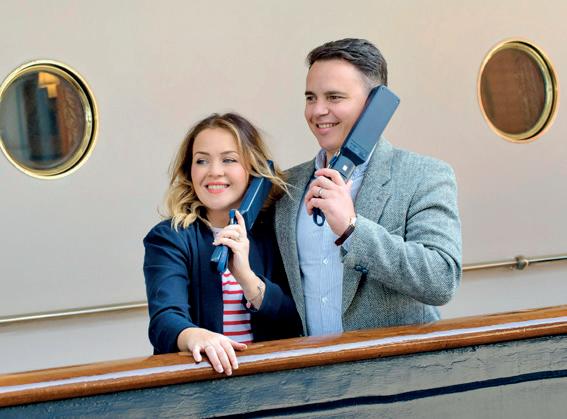An Update From Councillor Jim Campbell I’m sure many readers will have seen my fellow Councillor, John McLellan’s, articles in the Evening News. His recent comments about what residents contact Councillors about certainly matches my experience. Roads, pavements and all the things that we find on them, would certainly top the list of issues raised with me. Including the aspects of waste (the cleanliness of streets, paths and bins are favourite topics), these frequent areas of correspondence account for no more than 15% of the Council budget. Education (c 40%) and Social Work (c 35%) account for the vast majority of Council spending, but are less likely to be raised by residents day to day. The state of our roads, pavements and paths remain a significant challenge. The Council has a Roads Improvement Plan it is now working too. This has involved a re-organisation and centralisation of key technical areas not dissimilar from the suggestions of my predecessor, Cllr Allan Jackson, made some years ago when the Roads Service adopted a model operating out of local offices. It turns out that having a central team of transport engineers (who are in short supply) specialising in their own areas of expertise gives more advantages than a localised structure where individuals have to master a wider range of road related disciplines. The Improvement Plan has been in the works for many years now, and has been championed by the Governance, Risk and Best Value Committee (audit, in old language) of which I am a member. Let’s hope this bears fruit. We certainly need some innovation to improve what we do: a frequent complaint has been the dismally poor quality of temporary pothole repairs which are a far less efficient solution than just getting a proper, permanent repair in the first place. Several companies have come up with new solutions to this perennial problem. One, Road Mole, have eliminated corners form tarmac patches, cutting the road surface in circular shapes. In common with repairing any material, this removes the weaknesses inherent in corners. Another, better known company, JCB, have developed 30
a single machine to repair patches, offering savings in time and labour. To date, such developments have been subject to some ridicule by leading Edinburgh Councillors. As other Scottish Local Authorities trial and adopting such new ways of working, no doubt we will be forced to update our practices too. The Spaces for People programme, with its easy approach to changing the use of our road space, has also contributed significantly to mailbags in this last year. Its hard to argue against us encouraging each other to take part in more active travel. There are clear benefits for health and for the environment. Of course, we must accept that there are those for whom walking and cycling is not an option. It is quite disappointing, however, that the implementation of what should have been a widely supported goal has instead created bitter division in the city. In contrast, the contract to upgrade street lighting round the city with new energy efficient bulbs to save cash and carbon has been relatively smooth. The biggest challenges seem to have been vegetation allowed to overgrow pavements: something the Council always had powers to deal with but has somewhat neglected. Perhaps this is all a reminder that changing things is much easier than changing people’s behaviours. And that many local Councillors are still politicians who take basic issues like the state of our roads for granted, and might prefer to opine on matters of national and international interest. I do pay tribute to Edinburgh Councillors of all colours that put themselves forward for the Scottish Parliamentary election. Only a few will succeed; in fact many fail even to be selected for a constituency or regional list by their Party’s members. Without individuals willing to campaign for what they believe in (and in the knowledge they will likely lose) we wouldn’t have any functioning democracy. But Council isn’t a Parliament, and still has much important work to do on improving basic services. Although the City Chambers remains closed, I can still be contacted on 0131 529 4235, or better still, by email: jim.campbell@edinburgh.gov.uk






